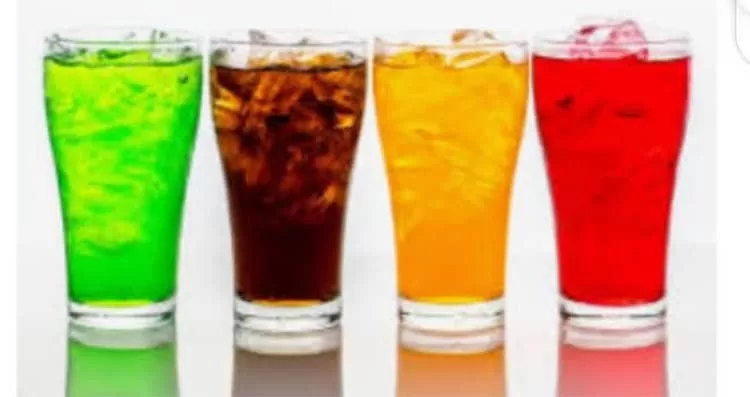There is a call from health experts and advocates on the Federal Government to review the Finance 2021 Act on Sugar Sweetened Beverages, SSB Tax, from N10 Per Litre to 20 Percent, due to its hazardous health implications on Consumers.
SSBs can be found in carbonated Soft drinks, energy drinks, concentrates or syrups, sport drinks, pre sweetened teas and coffees, enhanced waters, milk based drinks, less than 100 percent fruit or vegetable juices such as juice drinks and nectar.
The high sugar consumptions among children, adolescents and adults has led to non-communicable diseases, NCDs, such as Cardiovascular diseases, cancer, chronic respiratory diseases and diabetes, which is responsible for 74 percent of all deaths globally, with Nigeria recording a high percent.
The risk of consumption of sugar can be traced to this SSBs which health implication leads to NCDs.
Following this development, health advocates, Corporate Accountability and Public Participation Africa, CAPPA, said that in tackling the SSB menace and its health implications, Taxation is however an effective policy measure to reduce sugar consumption, control incidence of diet related NCDs and reduced its associated health and economic burden.
According to Dr. Francis Adegbule, a Private Health Consultant at the University College Hospital, UCH, University of Ibadan, “SSBs offer more harm than good. Factors leading to the consumption of SSBs is lack of awareness and public education, affordability of SSB products, mindset, availability, urbanization.
“The intake of SSB leads to obesity, Type 2 Diabetes, Hypertension, Cardiovascular diseases, kidney diseases, Non-Alcoholic Liver Diseases. Study have shown that 30 Percent of Adults in Nigeria have hypertension and this could be traced to intake of SSBs”, Adegbule stated.
Preferring a solution to this menace, Adegbule said it was necessary to build a healthy public policy, and restrictions by Government on the SSB Industry on Marketing of Sugary Foods for Children, heavy taxation of SSBs and reorientation of health services.
He stressed that Water is the best option as against consumption of SSBs.
Adeolu Adebiyi, Senior Regional Policy Adviser, Food Program for Global Health Advocacy Incubator, GHAI, said that increased in SSB taxation was necessary for Nigerians to live healthier and have a healthy environment.
He added that SSB Taxation increment from the N10 per litre to 20 percent taxation was germane so that there would reduction in the consumption of sugar, which will in turn reduce the health challenges the consumers are undergoing.
The Executive Director of CAPPA, Akinbode Oluwafemi said that the SSB industry are saying that the 20 percent taxation is targeted at the masses, who will bear the brunt and also lead to job loss.
Oluwafemi however queried this analogy, stressing that there is no nutritive value SSB products have, rather, it endangers the health of everyone irrespective of status.
He added that what is been advocated for is that when the SSB tax in increased this will deter the minds of the consumers from consuming it because the prices of the SSB products will skyrocket.
“The SSB Industry players are saying it is a lot to send them out of business, but what they need to do is reformulation of their product by reducing the sugar content , and also explore healthier alternatives.
“The industry is just bent of making profit and more profit at the expense of the health and lives of the consumers. Between and profit and Health which is more important?”, Oluwafemi queried.
It would be recalled that the clamour for more taxes on SSB has been rife.
The National Action for Sugar Reduction Coalition, NASR, and the President, Nigeria Cancer Society, NCS, had earlier advocated for more taxes on SSB to create more effect on consumption.
Adamu Alhassan, the co-Chairman of the coalition had argued that the current N10 per litre tax on product has no effect on the production industries.
He said that increasing SSB taxes would improve the health impact of taxation on high blood pressure, stroke and even cancers.
“These diseases are very expensive to treat. There is no evidence that the N10/litre tax has had any such effects on the industry.
“NASR has maintained and has redesigned effort to reduce consumption of these harmful products and ultimately prevent the burden of Non-Communicable Diseases (NCDs) which has been on the increase.
“Taxes can improve health by leading consumers to buy less and lowering the risk of NCDs, it has been scientifically proven that the world has achieved a significant impact on SSB consumption patterns through tax.
“The N10 per litre tax is not sufficient to reduce consumption and consequently, and if tax revenue is invested, can relieve the overburdened health system.
“Countries such as South Africa, Mexico and the Philippines, where SSB taxes have been implemented to reduce the risk of chronic diseases that has burdened families, have not led to job losses.
“Beverage industry arguments are unfounded, as indicated by the evidence from these countries,” Alhassan said.
He stated that Nigeria is in need of more policies that would protect public heath and raise revenue for healthcare.
Discover more from The Source
Subscribe to get the latest posts sent to your email.








